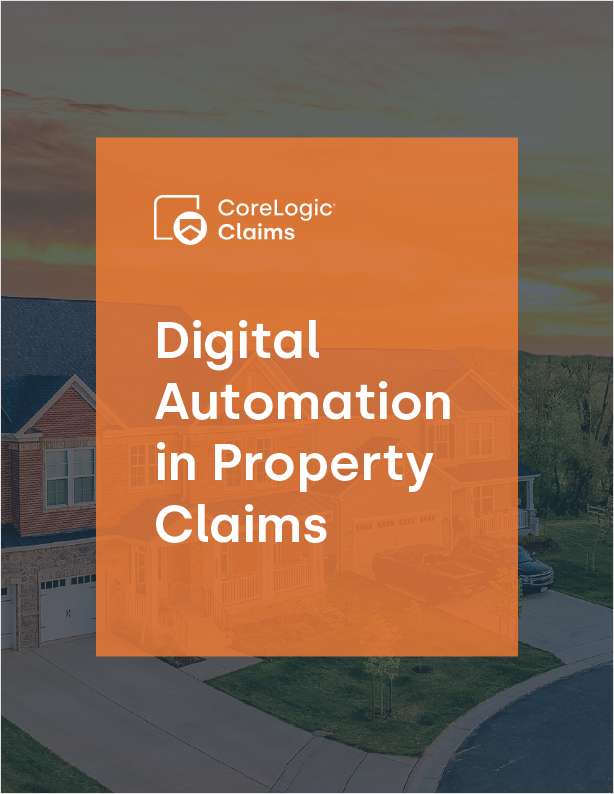Bar Admissions Process Bends Toward Justice—With a Little Help
Connecticut Bar admissions questions no longer target a diagnosis—an immutable but often irrelevant characteristic—but instead focus on known behaviors that affect the candidate's ability to practice law.
June 14, 2019 at 10:24 AM
4 minute read
 Jon Bauer, director, Asylum and Human Rights Clinic at the University of Connecticut School of Law/courtesy photo
Jon Bauer, director, Asylum and Human Rights Clinic at the University of Connecticut School of Law/courtesy photo
State bar examiners' recent decision to eliminate all questions about mental health, switching instead to behavior-based questions, has made Connecticut an early leader nationwide.
According to the Bazelon Center for Mental Health Law, others in the vanguard are Arizona, Illinois, Massachusetts, Washington state and Mississippi.
The change now aligns Connecticut's character and fitness questioning with federal disability law. It is the culmination of nearly three decades of effort by a cast of unsung Connecticut attorneys and disability advocates.
In a nutshell, the questions no longer target a diagnosis, an immutable but often irrelevant characteristic, but instead focus on known behaviors that affect the candidate's ability to practice law.
A good example of the behavior-based questioning is Connecticut's question 33. It asks whether the candidate has been arrested, fired, disciplined or breached a fiduciary obligation, or broken various other rules in the past five years.
This small change illustrates the evolution of something larger—how society seeks justice.
From caveman days, humans have been making quick-and-dirty decisions based on a stranger's appearance, race or other immutable quality. The primitive savage, confronting a stranger in the jungle, instinctively had a fight-or-flight response.
Potential foes, checking for rocks, began the custom of shaking hands, in self-defense. Humans evolved highly developed facial-recognition skills, but only, it turns out, for those of one's own race. In a “kill or be killed” world, those who were clearly “other” didn't merit deliberative evaluation, according to the anthropologists.
Modernly, this atavistic instinct has been at the root of pogroms, genocide and “ethnic cleansing.”
It's taken far too long to realize that it's unjust to prejudge people based on features they were born with or can't change: race, gender, ethnic origin, sexual preference, religion or, most recently, a diagnosis of a disability.
The same learning curve applied to bar examiners, and nothing was happening overnight.
With passage of the Americans with Disabilities Act in 1990, the general public was forced to consider disability access issues.
Four years after the ADA's passage, the American Bar Association passed a resolution urging bar examiners to narrowly tailor their questions about mental health status. Connecticut changed the questions, but still focused on finding a diagnosis. Meanwhile, studies were indicating that having a mental health diagnosis in one's past did not predict the likelihood of harm to clients. More often, it only served to subject candidates to long and often expensive probes of their private medical records and treatment histories.
In 2001, Jon Bauer, a UConn law clinical professor, published “The Character of the Questions and the Fitness of the Process: Mental Health, Bar Admissions and the Americans with Disabilities Act” in the UCLA Law Review. One of his conclusions was that “there is simply no empirical evidence that applicants' mental health histories are significantly predictive of future misconduct or malpractice as an attorney.”
Bauer's law review articles and other scholarly surveys of the data found that mental health histories were useless as a predictor of misconduct. The U.S. Department of Justice, in 2014, notified Louisiana and Vermont that their bar application questions targeted people with disabilities unnecessarily—and perhaps illegally.
Questions asking whether a diagnosis, “if left untreated[,] could affect” ability to practice law reduced the question to “do you have a diagnosis.” Framing it as a future hypothetical actually shed no light on the candidate's fitness to practice.
In the 2015 report by the ABA's section on individual rights and responsibilities, these arguments were raised to support of a new resolution calling for complete elimination of any questions asking about mental health history. Connecticut heeded the call.
In nearly three decades of effort to vindicate ADA principles, no one has worked longer or harder than Bauer to bring fairness to the bar exam questions, as reflected in Law Tribune coverage of his clinic's efforts from the 1990s forward, and Bauer's recognition by the Law Tribune as a nominee for Attorney of the Year.
Throughout its history, the legal profession has the challenge of policing itself to protect the public. Bauer's work has now elevated the fairness and justice of meeting that challenge
In a letter notifying law students of the change, Bauer downplayed his own role, and was broadly generous in his praise of many Connecticut lawyers, judges and others who joined in the effort.
This content has been archived. It is available through our partners, LexisNexis® and Bloomberg Law.
To view this content, please continue to their sites.
Not a Lexis Subscriber?
Subscribe Now
Not a Bloomberg Law Subscriber?
Subscribe Now
NOT FOR REPRINT
© 2025 ALM Global, LLC, All Rights Reserved. Request academic re-use from www.copyright.com. All other uses, submit a request to [email protected]. For more information visit Asset & Logo Licensing.
You Might Like
View All
ADVANCE Act Offers Conn. Opportunity to Enhance Carbon-Free Energy and Improve Reliability With Advanced Nuclear Technologies

Trending Stories
Who Got The Work
J. Brugh Lower of Gibbons has entered an appearance for industrial equipment supplier Devco Corporation in a pending trademark infringement lawsuit. The suit, accusing the defendant of selling knock-off Graco products, was filed Dec. 18 in New Jersey District Court by Rivkin Radler on behalf of Graco Inc. and Graco Minnesota. The case, assigned to U.S. District Judge Zahid N. Quraishi, is 3:24-cv-11294, Graco Inc. et al v. Devco Corporation.
Who Got The Work
Rebecca Maller-Stein and Kent A. Yalowitz of Arnold & Porter Kaye Scholer have entered their appearances for Hanaco Venture Capital and its executives, Lior Prosor and David Frankel, in a pending securities lawsuit. The action, filed on Dec. 24 in New York Southern District Court by Zell, Aron & Co. on behalf of Goldeneye Advisors, accuses the defendants of negligently and fraudulently managing the plaintiff's $1 million investment. The case, assigned to U.S. District Judge Vernon S. Broderick, is 1:24-cv-09918, Goldeneye Advisors, LLC v. Hanaco Venture Capital, Ltd. et al.
Who Got The Work
Attorneys from A&O Shearman has stepped in as defense counsel for Toronto-Dominion Bank and other defendants in a pending securities class action. The suit, filed Dec. 11 in New York Southern District Court by Bleichmar Fonti & Auld, accuses the defendants of concealing the bank's 'pervasive' deficiencies in regards to its compliance with the Bank Secrecy Act and the quality of its anti-money laundering controls. The case, assigned to U.S. District Judge Arun Subramanian, is 1:24-cv-09445, Gonzalez v. The Toronto-Dominion Bank et al.
Who Got The Work
Crown Castle International, a Pennsylvania company providing shared communications infrastructure, has turned to Luke D. Wolf of Gordon Rees Scully Mansukhani to fend off a pending breach-of-contract lawsuit. The court action, filed Nov. 25 in Michigan Eastern District Court by Hooper Hathaway PC on behalf of The Town Residences LLC, accuses Crown Castle of failing to transfer approximately $30,000 in utility payments from T-Mobile in breach of a roof-top lease and assignment agreement. The case, assigned to U.S. District Judge Susan K. Declercq, is 2:24-cv-13131, The Town Residences LLC v. T-Mobile US, Inc. et al.
Who Got The Work
Wilfred P. Coronato and Daniel M. Schwartz of McCarter & English have stepped in as defense counsel to Electrolux Home Products Inc. in a pending product liability lawsuit. The court action, filed Nov. 26 in New York Eastern District Court by Poulos Lopiccolo PC and Nagel Rice LLP on behalf of David Stern, alleges that the defendant's refrigerators’ drawers and shelving repeatedly break and fall apart within months after purchase. The case, assigned to U.S. District Judge Joan M. Azrack, is 2:24-cv-08204, Stern v. Electrolux Home Products, Inc.
Featured Firms
Law Offices of Gary Martin Hays & Associates, P.C.
(470) 294-1674
Law Offices of Mark E. Salomone
(857) 444-6468
Smith & Hassler
(713) 739-1250












